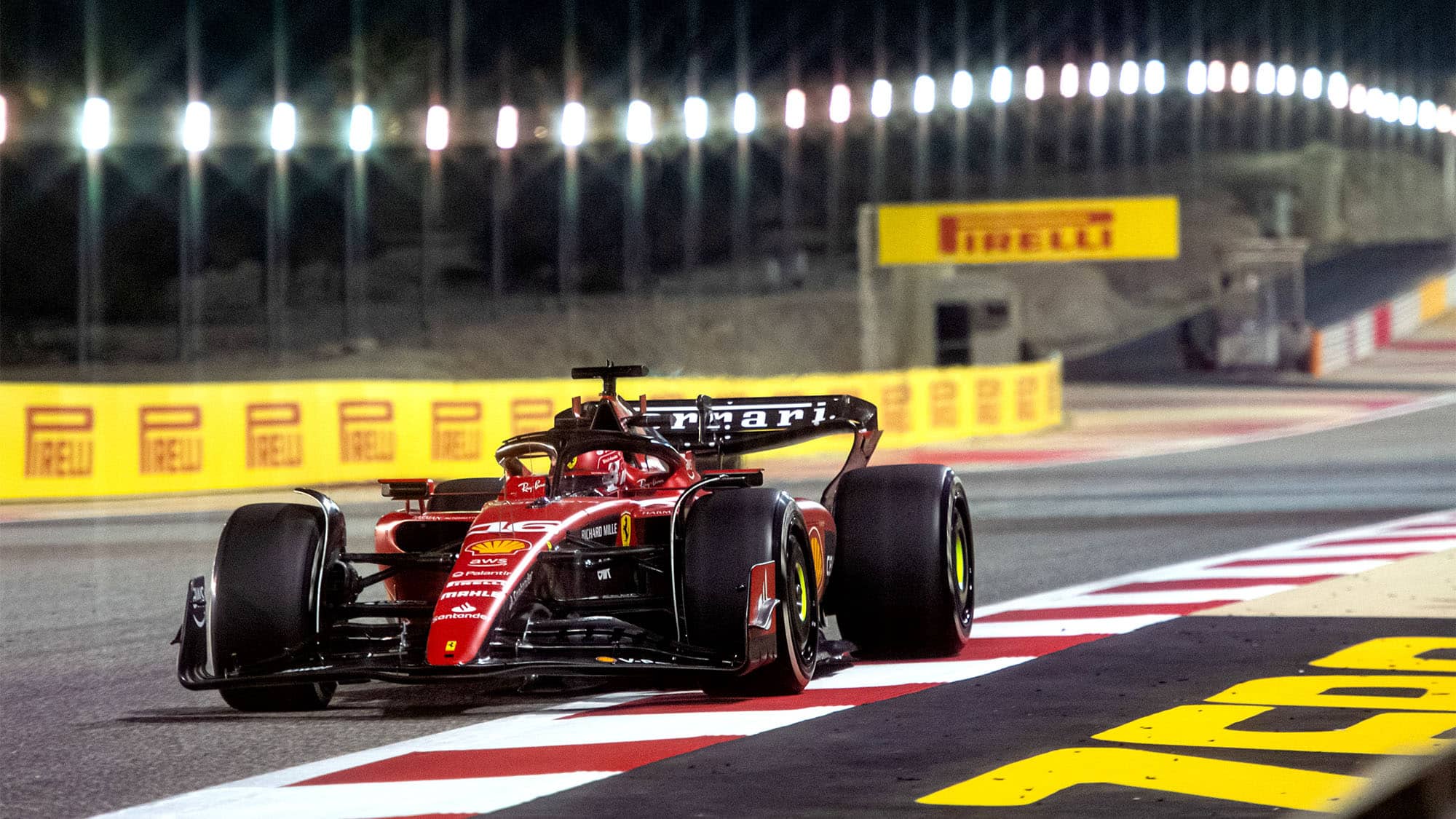Last year Ferrari had several high-profile engine failures, including while Charles Leclerc was leading in both Spain and Azerbaijan, and when team-mate Carlos Sainz was heading for the runner-up spot in a Scuderia 1-2 in Austria.
Thereon, the Italian team reportedly had to turn its engine down, running at a lower horsepower output so it could make to the end of races.
Now it’s widely thought the issues holding Ferrari back has been overcome, apparently putting an extra 30bhp on tap.
“I think Ferrari was saying that’s how much they detuned it by,” remarks Hughes, emphasising how reliability equals performance.
“What they’re getting at is a very sensitive subject, isn’t it? Because in theory, you can’t do performance developments, but you can do reliability developments. But of course, if it’s more reliable, you can run it harder.”

Leclerc will be hoping to challenge the Red Bulls via a full-force power unit
Ferrari
The grand prix editor also highlights where the bhp figure initially came from.
“Ferrari was implying that it was two tenths slower after Baku because it had to protect the ERS-H, and I think that’s been translated to about 30bhp,” he says.
“But it’s not really like that with hybrid units, because it’s about where the power is, and where you fill it in with the electrics and all that.


